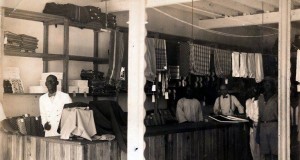
Free Enterprise, as an economic principle, features minimum intervention of government and greater participation of private individuals in business management. This system, idealised by early political associations such as the People’s Union, endured in the tenets of the educated elites that Ademola II, Alake of Abeokuta, had recommended at his coronation in 1920 that “all the nooks and corners of the country should be as free to commerce as the air we breathe.” The king, as reported in Folarin’s Life of the Egbas also credited the principle as the “principal mainstay of all progressive states.
Although the Nigerian laissez faire policy included the ‘unconditional’ opening of its doors to foreign enterprises since 1945, like Kenya and many francophone countries, the indigenization decree of 1972 appear to have increased government participation, as it chooses to involve itself in ensuring the direction of Nigerian industrial evolution is trusted in indigenous hands. This was clearly not the case in colonial times, like for example, when influx of European traders such as John Holt, G.B. Ollivat and Miller Brothers into retail trade that the Ijebu were known for, threatened the latter, and eventually reduced their profits. Competition from European companies was made even tougher with the inclusion of France’s Compagnie Francais de l’Afrique Occidentale, the United Africa Company, Patterson and Zochonis, Germany’s Will and Busch and Rowntree’s Cocoa Manufacturers Limited in the 1930s. Free enterprise was advantageous to rural buyers who now got imported goods at same price as with the big towns.
In Abeokuta, European merchants’ factories were established at Ibara through the influence of the Rev. J.H. Samuel, who was appointed secretary to the Egba government in 1902. Appearance of the Europeans reduced the monopoly enjoyed hitherto by native traders and middle men because petty traders and consumers preferred doing business with expatriates. Authorities of the Egba government, when petitioned, always replied with what is apparently their adopted doctrine for enterprises, “no check must be put in the way of trade”.





















